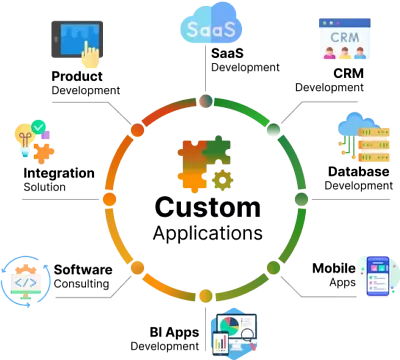Why Regular IT Audits Are Crucial for Remote Work Security

As remote and hybrid work environments become the norm, businesses are rapidly embracing digital infrastructure to ensure smooth operations. But with this flexibility comes an increased risk of cybersecurity threats. In such a landscape, regular IT audits have become a strategic necessity rather than a formality. They serve as a cornerstone for maintaining data security, compliance, and operational continuity in remote work settings.
Whether you’re managing cloud systems, implementing email hosting for small business, or deploying custom software development solutions, audits provide a roadmap for securing your digital infrastructure.
What is an IT Audit?
An IT audit is a comprehensive examination of an organization’s information technology ecosystem. It involves analyzing controls, infrastructure, and operations to identify vulnerabilities, assess efficiency, and ensure compliance with industry regulations.
For businesses with remote teams, IT audits are particularly important to:
- Verify endpoint security
- Review access controls
- Assess cloud and VPN infrastructure
- Examine software and hardware configurations
- Ensure secure email hosting for small business
These evaluations help pinpoint weaknesses and provide actionable recommendations to strengthen defenses.
Why Are IT Audits Crucial in Remote Work Settings?
1. Expanded Attack Surface
Remote work environments inherently introduce more potential entry points for cyber attackers. Employees use personal devices, connect through home Wi-Fi networks, and rely heavily on cloud services.
Regular IT audits help businesses:
- Detect unauthorized access points
- Validate security of VPNs and firewalls
- Monitor use of third-party applications
- Identify outdated software and unpatched systems
With these insights, organizations can proactively mitigate threats before they escalate.
2. Email Remains a Primary Threat Vector
Email remains one of the most exploited channels for phishing, malware, and ransomware. For smaller enterprises, investing in the best email hosting for small business isn’t just a convenience—it’s a necessity.
During an audit, experts review:
- Email encryption protocols
- Spam filtering effectiveness
- Multi-factor authentication usage
- Data retention and backup practices
Using a secure and well-maintained email hosting for small business solution significantly reduces the chances of business email compromise (BEC) and data breaches.
Key Benefits of Regular IT Audits for Remote Work
✅ Identify Security Gaps
Audits help uncover vulnerabilities such as weak passwords, misconfigured cloud environments, or outdated antivirus software. Early identification enables prompt corrective action.
✅ Boost Regulatory Compliance
Businesses handling customer data must adhere to standards like GDPR, HIPAA, or PCI-DSS. An audit ensures your business remains compliant and avoids hefty penalties.
✅ Strengthen Cyber Hygiene
Regular reviews reinforce company-wide security practices, like using password managers or securing mobile devices—creating a more resilient workforce.
✅ Improve Productivity
A secure environment is a productive one. Audits help streamline IT systems, eliminate inefficiencies, and ensure reliable performance across platforms.
Elements Reviewed During an IT Audit
Here’s what a robust IT audit typically includes:
- Endpoint Protection: Ensures laptops, smartphones, and other devices are secured.
- Access Control: Verifies role-based access to data and applications.
- Cloud Infrastructure: Reviews AWS, Azure, or Google Cloud configurations for compliance.
- Communication Tools: Evaluates the security of Zoom, Slack, Teams, and email systems.
- Backup & Disaster Recovery: Confirms the ability to recover data during emergencies.
- Software Licensing & Updates: Ensures only authorized, up-to-date software is used.
These factors collectively reinforce the importance of working with a reliable IT support and services partner to maintain compliance and security.
The Role of IT Support and Services in IT Audits
Your internal team might not have the bandwidth or expertise to conduct comprehensive audits. This is where outsourcing to an expert IT support and services provider proves invaluable.
A qualified IT partner will:
- Run penetration tests
- Generate compliance reports
- Manage vulnerability assessments
- Offer ongoing IT support and maintenance services
When choosing an audit partner, ensure they have experience supporting remote work models and are familiar with the latest cybersecurity frameworks.
Email Hosting and Audit Relevance
With employees relying on digital communication more than ever, email hosting for small business must be secure, reliable, and aligned with compliance requirements.
Key audit considerations include:
- DNS settings and SPF/DKIM/DMARC compliance
- Server uptime and latency monitoring
- Email archiving and legal hold features
Choosing the best email hosting for small business with these capabilities not only secures communication but also streamlines audits and documentation.
Custom Software Development and IT Audits
Businesses that use tailored applications built by custom software development solutions providers must regularly audit those systems. Custom code is often more vulnerable to exploits if not continuously monitored.
An IT audit in this context should:
- Review application source code for security flaws
- Validate user access roles and permissions
- Test API endpoints for vulnerabilities
- Ensure secure storage and transmission of data
Working with reputable software development companies for startups that prioritize security during the software development lifecycle ensures a strong foundation for remote infrastructure.
Common IT Audit Findings and Fixes
Here are some common findings and the solutions businesses implement post-audit:
| Finding | Solution |
| Weak passwords | Enforce strong password policies and MFA |
| Outdated antivirus software | Switch to cloud-based endpoint protection |
| Unsecured remote access | Deploy encrypted VPNs and zero-trust networks |
| Lack of data backups | Implement daily automated backups with cloud redundancy |
| Shadow IT usage | Centralize software procurement and review permissions |
How Often Should You Audit?
There’s no one-size-fits-all answer, but here are general guidelines:
- Quarterly audits: For businesses with high-risk data or sensitive customer information.
- Bi-annual audits: For growing businesses with hybrid teams.
- Annual audits: For small businesses with less complexity but still needing oversight.
Remember: The more frequently you audit, the better prepared you are against evolving threats.
Tips for a Successful IT Audit
- Prepare your documentation: Have a record of software licenses, IT policies, and asset inventory ready.
- Involve key stakeholders: Include HR, operations, and legal teams for a well-rounded view.
- Prioritize action items: Focus on the most critical vulnerabilities first.
- Track improvements: Use audit outcomes to track progress and justify investments in IT upgrades.
Building a Culture of Cybersecurity
Security is everyone’s responsibility. Beyond regular audits, foster a workplace culture that prioritizes cybersecurity.
Here’s how:
- Conduct regular training on phishing and data handling
- Encourage reporting of suspicious activities
- Provide tools like password managers
- Maintain clear cybersecurity policies and SOPs
Partnering with a custom software development solutions provider that integrates security from day one ensures that your digital assets remain protected in remote environments.
The Rising Role of Managed IT Services in Audit-Driven Security
As cyber threats grow in complexity and frequency, businesses—especially those with dispersed teams—are increasingly turning to managed IT services providers. These providers offer a proactive and scalable approach to security, ensuring that all endpoints, cloud systems, and business-critical applications are continually monitored and maintained.
One of the biggest challenges remote businesses face is ensuring that security standards are upheld outside of a traditional office perimeter. Managed IT services providers bridge this gap by offering 24/7 support, automated patch management, real-time threat detection, and system hardening—all of which can be measured and refined through regular audits.
With the help of these experts, companies can transform their audits from reactive checklists into ongoing improvement strategies.
Why Managed Services Are Essential for Remote IT Audits
Managed services providers not only help implement remediation strategies post-audit but also assist with:
- Continuous compliance monitoring
- Proactive threat intelligence
- Secure email and communication platforms
- Remote desktop management and security updates
- Documentation and audit trail maintenance
This level of support ensures that businesses using tools like email hosting for small business or relying on custom software development solutions are not left vulnerable due to oversight or lack of in-house expertise.
Aligning Audits with Business Growth
IT audits also serve a strategic role in supporting business scalability. As startups evolve into mid-sized enterprises, their digital footprint expands. By partnering with software development companies for startups and conducting regular audits, businesses can ensure that security keeps pace with growth.
Whether launching a new SaaS product or deploying internal collaboration tools, audit results help development teams prioritize security in future updates and product iterations.
Additionally, integrating audit feedback into your broader IT support and maintenance services framework allows businesses to make data-driven decisions about which tools to adopt, replace, or retire—ultimately optimizing both security and performance in the hybrid work model.
Final Thoughts: Security is a Journey, Not a Destination
Remote work has transformed how businesses operate, but it has also raised the stakes for cybersecurity. Regular IT audits are no longer optional—they’re a business imperative. Whether you’re looking to secure your email hosting for small business, align with compliance regulations, or vet your custom software development solutions, audits provide the insights and assurance your organization needs to thrive in a digital world.
Protect your remote workforce with a comprehensive IT audit.
Get in touch with our experts at Ideas2Goal to schedule your first assessment. We specialize in IT support and services, audit readiness, and securing remote work infrastructure—so you can work smarter and safer, from anywhere.



